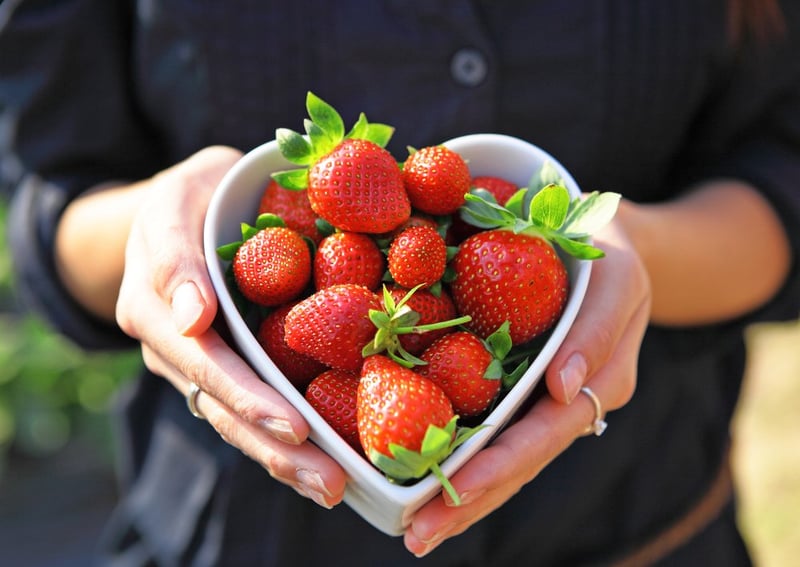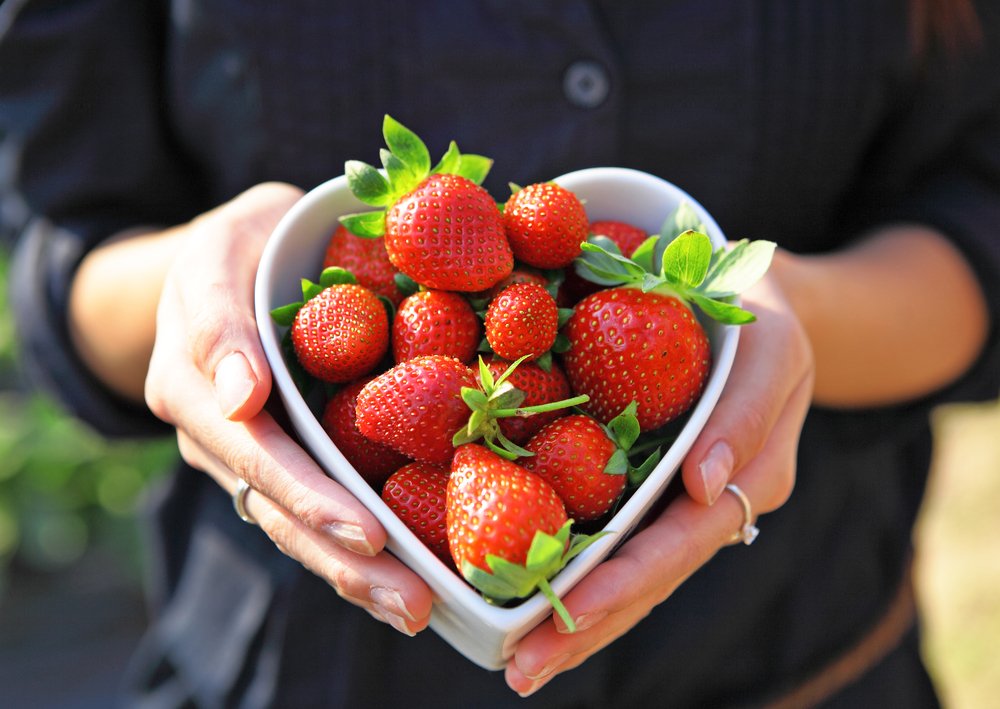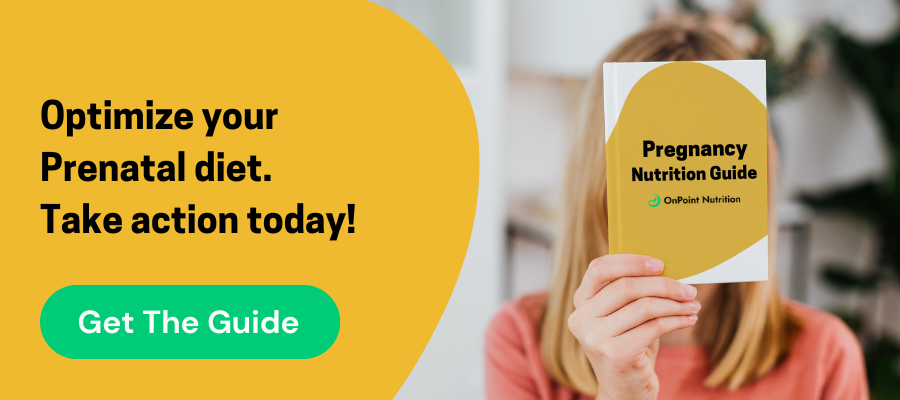
Fruit is a key part of a healthy diet. Fruits provide your body with nutrients both you and your baby need for optimal health. Including fruit as part of a well-balanced diet is ideal for both moms-to-be and babies throughout pregnancy.
Fruit is full of vitamins and minerals, which have important functions throughout your body. Different fruits contain different vitamins and minerals, which makes eating a wide variety of fruits most beneficial. Fruit is also a dense source of fiber, which helps maintain proper digestion throughout pregnancy. Constipation is common during pregnancy and can be alleviated with increased fiber intake. When increasing fiber intake, increase fluid intake to ensure smooth digestion. Fruits are also high in fluid to help meet both needs.
Specific Fruits Recommendations
While all fruits are healthy to consume during pregnancy, there are a few fruits that can be particularly beneficial to you and your baby.
- Berries are great sources of fiber, vitamin C, and antioxidants. Eat a variety of berries, including strawberries, blueberries, raspberries, and blackberries to increase your intake of beneficial nutrients.
- Oranges, grapefruits, and other citrus fruits are dense sources of folate, which is needed for your baby’s developing brain and spinal cord. Citrus fruits are also packed with vitamin C, which helps prevent damage to your cells. Vitamin C also helps your body absorb iron, another key nutrient during pregnancy.
- Bananas are another fiber-rich fruit to include during pregnancy. In addition to fiber, bananas contain potassium and vitamin B6. Vitamin B6 may be beneficial for relieving nausea and vomiting early in pregnancy, which makes bananas a great early pregnancy option.
- Apples are a great source of fiber and vitamin C. Apples also contain pectin, which is a prebiotic fiber that helps feed the good bacteria within your gut. A healthy gut is important for both moms-to-be and their babies. Apple skin, and other fruit skins, are a denser source of fiber and nutrients, so be sure to eat the skin. The fiber in the skin also helps reduce the glycemic effect of fruit, which means it has less effect on your blood sugar. This can be especially helpful for women with gestational diabetes.
- Avocados are in fact considered fruit, and one that is healthy to include during pregnancy. Avocados provide the body with healthy fats, in addition to fiber and folate. Choline, which is crucial for your baby’s brain development, is also found in avocados.
- Mangoes are a dense source of vitamin C and provide 100% of your daily needs in just one cup. Mangoes also contain vitamin A, which is needed for your baby’s immune system development. Please note, it is possible to get too much vitamin A, although unlikely. As with all foods, enjoy mangoes in moderation.
- Lemons are high in vitamin C, and while most women aren’t eating lemons, they can be a beneficial fruit to include in your pregnancy routine. The taste and smell of lemon may help relieve nausea associated with pregnancy. Some pregnant women find drinking warm water with lemon to be soothing for their stomachs.
Recommended Fruit Intake
In general, experts recommend consuming 2-3 fruit servings daily. A fruit serving is one medium-sized fruit: apples, bananas, oranges, etc. or about 1 cup of fruit, including berries, grapes, cut melon, etc.
Fresh, Frozen, Dried, or Juiced
While fresh fruit is usually the default choice for most, incorporating other versions of fruit helps meet your daily needs. Keeping frozen fruit in your freezer is a great way to make sure you always have fruit on hand, with less risk of it spoiling before you can eat it.
Frozen fruits are picked at peaked ripeness, which is when they are most nutritious. Often, fruit is washed, cut, frozen, and packaged within hours of picking, which helps maintain its nutrient content. Frozen fruit has the same nutritional value as fresh so don’t be afraid to include it in your diet. It is best to use frozen fruits within one year, as vitamins and minerals begin to break down after this point.
Dried fruit is another option to get your recommended daily fruit servings. Dried fruit provides the same nutrients as fresh fruit, minus the water. With a smaller serving size, you get more nutrients in a smaller package, which may be beneficial if you are experiencing bloating or uncomfortable fullness during pregnancy. Prunes and dates can be especially beneficial during pregnancy as both are rich sources of fiber and potassium. Prunes act as a natural laxative, which may alleviate constipation associated with pregnancy. When purchasing dried fruit, opt for unsweetened or no sugar-added options. You can assess sugar content by reading the nutrition facts panel and the ingredients. The best option lists 0 grams of added sugars and has an ingredient list that just lists the fruit itself.
Consuming fruit juices during pregnancy is another way to get an extra serving or two of fruit. However, juicing fruits removes fiber, which is particularly important during pregnancy so eating whole fruits is preferred.
Organic or Not
In an ideal world, organic produce, which has not been treated with pesticides, is best. However, eating non-organic fruit is better than no fruit at all. If you are interested in organic fruit, the Environmental Working Group’s Dirty Dozen list is a great place to start. This list details the twelve produce items with the most pesticide residue. If 100% organic isn’t an option for you, trying to buy organic items on the Dirty Dozen list is a great option.
Safety Tips
Unwashed fruit presents a higher risk for developing a food borne illness. Make sure to wash all produce thoroughly before consuming. Wash produce marked prewashed as a recommended extra precaution during pregnancy. If you notice bruised spots on your fruit, remove those areas before eating, as bacteria often gather there. If you choose to drink fruit juices during pregnancy, it is safer to drink only pasteurized juices to reduce the risk for contamination.
The Bottom Line
Fruits are a great source of vitamins, minerals, fiber, and water. Do your best to consume fruit daily to benefit both you and your baby.

Topics

Liz has been reading nutrition labels since she learned how to read. Growing up with severe peanut and tree nut allergies she learned that it’s important to know what you are putting into your body. She made her first big lifestyle change as a freshman in high school, when she decided to become a vegetarian. However, it wasn’t until she took a food class in Italy as part of a study abroad program in college that it clicked in her mind that she wanted to make food and nutrition her career. Liz graduated from Penn State University in 2015 with a bachelor's degree in Nutrition, as well as a bachelor's degree in Marketing. She completed her dietetic internship with Aramark in Philadelphia, and her master's degree at Northeastern University shortly after.




